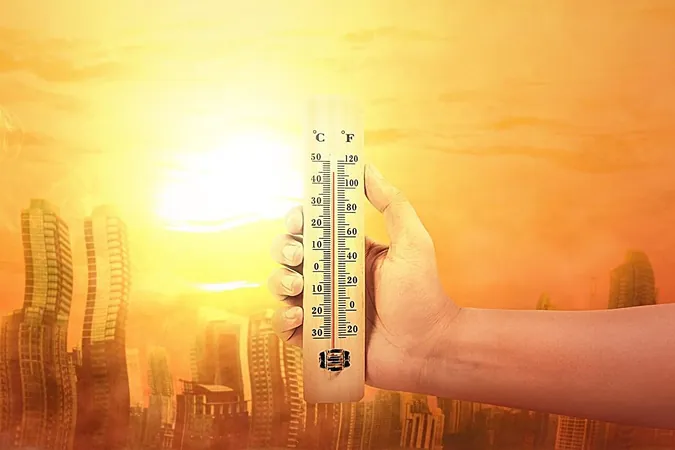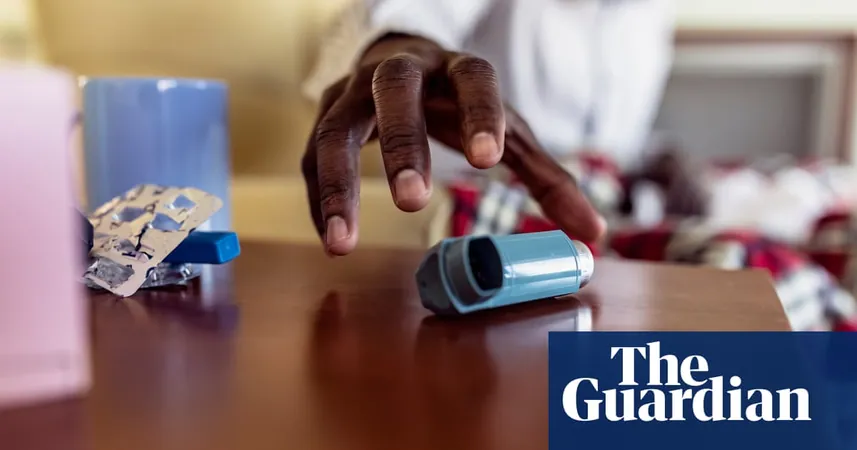
Alarming New Study Reveals Heat Waves Significantly Increase Risks for Heart Patients with Defibrillators
2024-11-11
Author: Wei
As heat waves become more frequent across the United States, new research sheds light on a concerning consequence for individuals with implanted defibrillators. These small but vital devices are designed to help regulate heartbeats and prevent potentially fatal cardiac events. However, a recent study indicates that patients who rely on these devices may face nearly triple the risk of experiencing dangerous arrhythmias, specifically atrial fibrillation (A-fib), on extremely hot days compared to cooler ones.
This important study, which was presented at the American Heart Association's annual meeting in Chicago, highlights the implications of climate change on cardiovascular health. Dr. Sanjay Rajagopalan, a noted expert with the AHA, emphasized the necessity for vulnerable populations to take preventative measures during heat spikes. "Those living in regions susceptible to soaring temperatures should heed these findings, ensuring they remain cool and well-hydrated," he advised.
Led by Dr. Barrak Alahmad from Harvard T.H. Chan School of Public Health, the research followed over 2,000 patients equipped with either an implanted cardioverter-defibrillator (ICD) or a cardiac resynchronization therapy defibrillator (CRT-D) between 2016 and 2023. The study discovered that the ideal outdoor temperature for minimizing the likelihood of A-fib is between 41 and 46 degrees Fahrenheit. When temperatures soared to 102.2 degrees Fahrenheit or higher, patients’ risks of developing A-fib significantly increased.
The research underscored that the timing of hot days also played a role; the likelihood of A-fib episodes was at its lowest in the morning but surged as the day progressed, with higher risks observed during workdays versus weekends.
Dr. Theofanie Mela, a co-author of the study and cardiac electrophysiologist at Massachusetts General Hospital, emphasized the urgency of further investigating the physiological mechanisms behind these findings. "It's imperative that we identify the conditions that trigger A-fib to help reduce the burden of arrhythmias," she stated.
In light of these discoveries, experts recommend that patients with implanted defibrillators avoid extreme temperatures and use air conditioning to combat the adverse effects of intense heat. The rise in temperature-related health risks for individuals with existing heart conditions serves as a stark reminder of the broader impact of climate change on public health.
With the increasing prevalence of atrial fibrillation, driven by age and obesity, the healthcare community is called to action. As these climate-induced challenges grow, we must prioritize the health and safety of vulnerable populations.




 Brasil (PT)
Brasil (PT)
 Canada (EN)
Canada (EN)
 Chile (ES)
Chile (ES)
 España (ES)
España (ES)
 France (FR)
France (FR)
 Hong Kong (EN)
Hong Kong (EN)
 Italia (IT)
Italia (IT)
 日本 (JA)
日本 (JA)
 Magyarország (HU)
Magyarország (HU)
 Norge (NO)
Norge (NO)
 Polska (PL)
Polska (PL)
 Schweiz (DE)
Schweiz (DE)
 Singapore (EN)
Singapore (EN)
 Sverige (SV)
Sverige (SV)
 Suomi (FI)
Suomi (FI)
 Türkiye (TR)
Türkiye (TR)